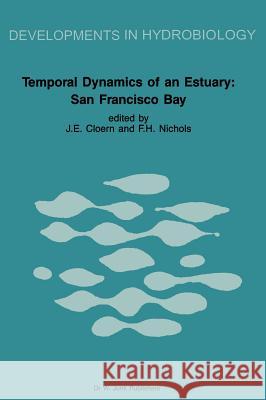Temporal Dynamics of an Estuary: San Francisco Bay » książka
Temporal Dynamics of an Estuary: San Francisco Bay
ISBN-13: 9789061935384 / Angielski / Twarda / 1985 / 237 str.
Estuaries are highly dynamic systems subject to changes occurring over a spectrum of time scales ranging from very short periods (e. g. over a tidal cycle) to geologic time scales. The nature of an estuary reflects complex responses to many driving forces, each having a characteristic frequency (or frequencies) of change. For example, freshwater inflow to estuaries varies daily in response to short-term events such as storms, seasonally, and between years as a result of longer-term climatic variability. Other important components of weather, e. g. wind speed/ direction and daily insolation, also vary over time scales ranging from hours to years. Tidal amplitude changes continuously with dominant frequencies associated with the semi-diurnal cycle, the fortnightly neap-spring, and the semi-annual cycle. Temporal dynamics of these driving forces evoke responses in the form of changing (I) circulation patterns and mixing, (2) sediment composition and transport, (3) solute speciation and distribution, (4) composition and abundance of particulates, (5) biomass, species composition, and productivity of plant and animal communities, (6) rates of material exchange between the sediments, water column, and atmosphere, and (7) bioavailability of trace metals and other pollutants. The purpose of this book is to examine the temporal dynamics of these properties and processes in the San Francisco Bay estuary.











